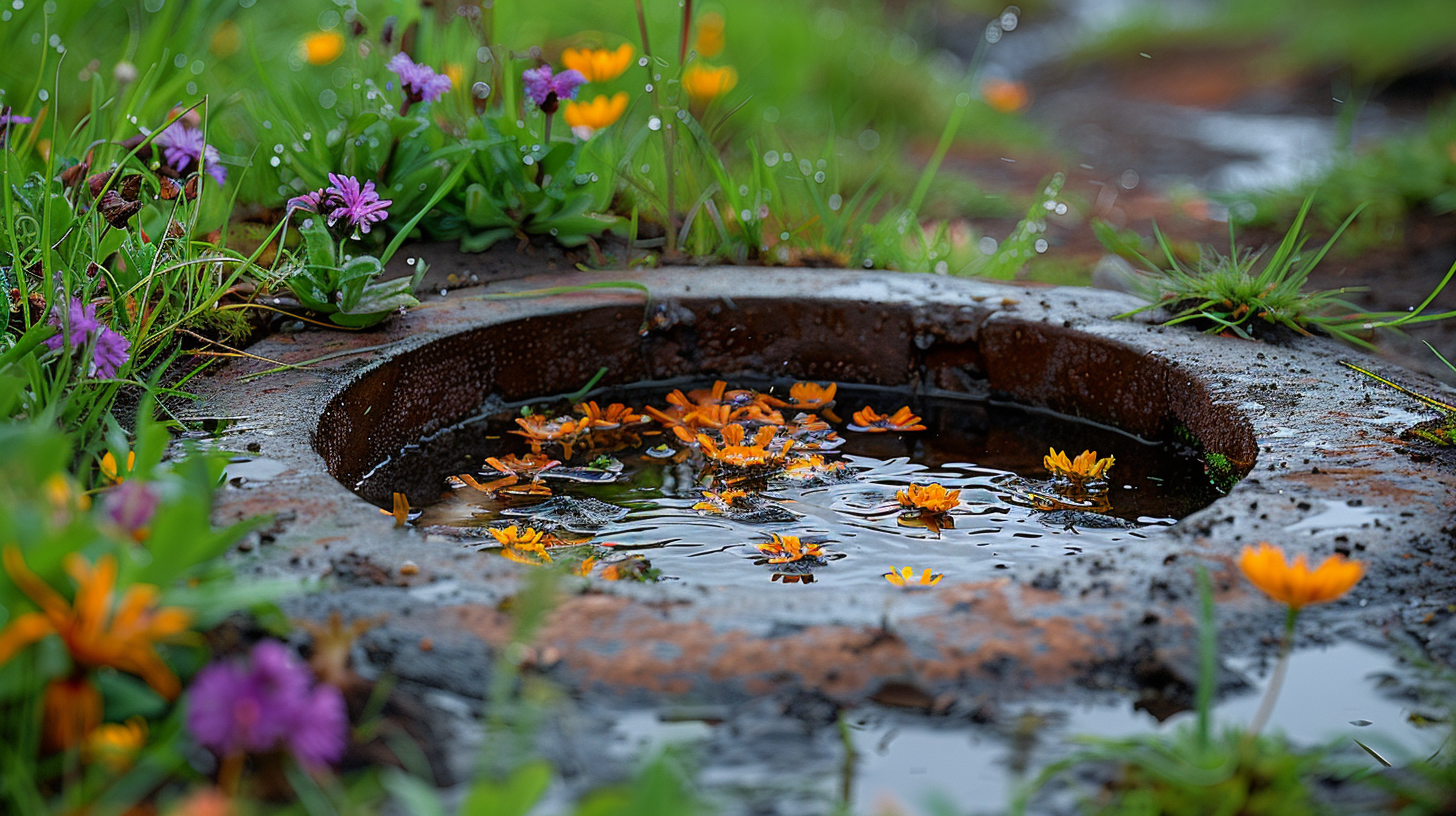Key points
• Helpful Bugs for Septic Tanks: Special worms, sometimes called sewage or septic worms, are added to septic systems to better break down solid waste for a cleaner and greener disposal method.
• Eco-Friendly Septic Care: These little critters eat the organic stuff in the tank, which means you don’t have to pump out the waste as often. They also keep things flowing smoothly so you’re less likely to have clogs or major system problems.
• When to Use Worms: Keep in mind that septic tank worms aren’t right for every system. How well they work can change with stuff like what you’re putting down the drain, how hot it is, and if the water’s acid or alkaline. Always check with an expert on septic systems before getting these worms to make sure they’ll actually do their job.
Contents
- 1 Key points
- 2 Septic Tank Worms and Their Relevance
- 3 Needed Conditions for Septic Tank Worms
- 4 How to Add Worms to Current Systems
- 5 Maintenance and Monitoring of Worm Populations
- 5.1 1. Reduction in Sludge Buildup
- 5.2 2. Potential for Reduced Need for Septic Tank Pumping
- 5.3 3. Positive Impact on the Longevity of the Septic System
- 5.4 4. Balancing worm populations with system load
- 5.5 5. Avoiding harmful substances that can affect worm health
- 5.6 6. Troubleshooting common issues with worm-based systems
- 6 How Worms Make Septic Tanks Better
- 7 Comparing Worm-Assisted and Regular Septic Systems
- 8 Future Research and Development Prospects
Septic Tank Worms and Their Relevance
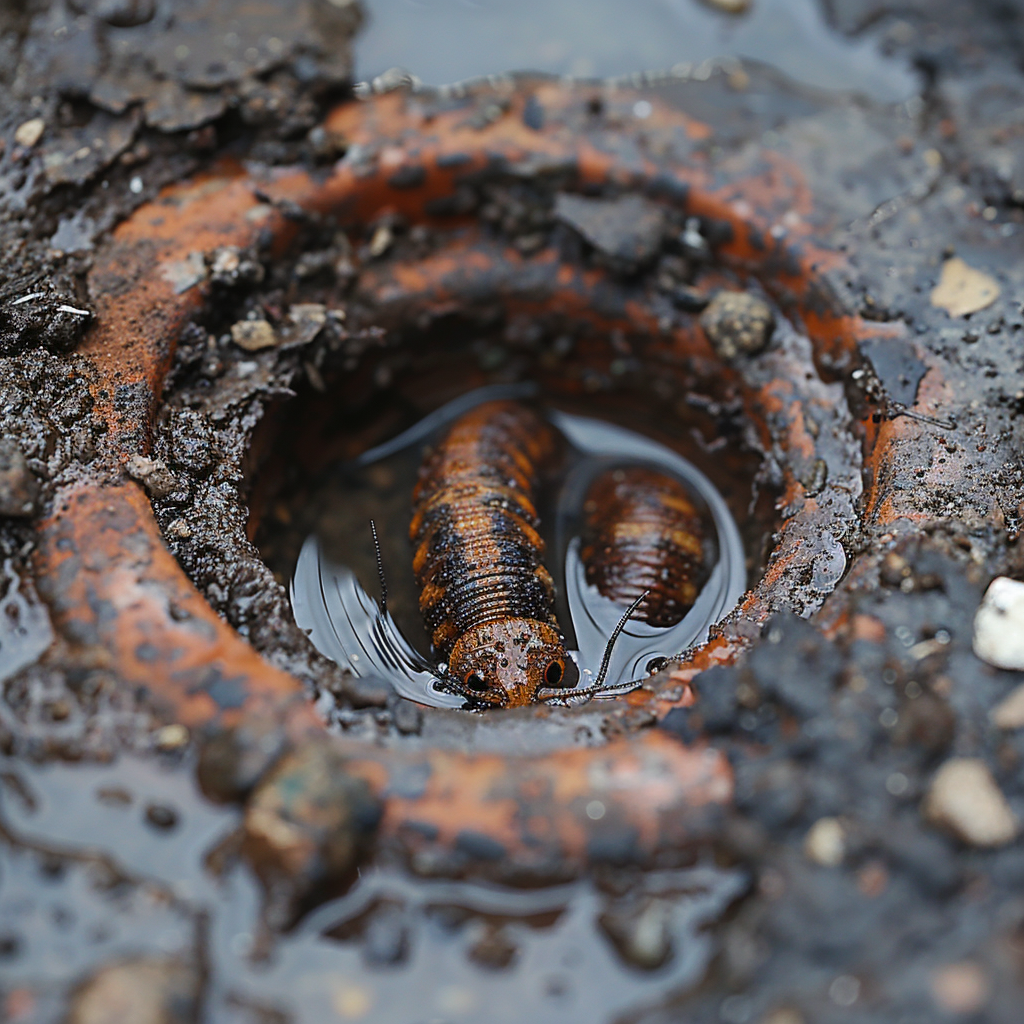
Septic tank worms join the ranks of microorganisms working hard in septic systems. They’re designed for such places, helping to break down solid waste more efficiently. They munch on bits of organic stuff, cutting back on sludge and making the liquid waste better before it goes out to the drainfield. These worms are also good because they mix a bit of oxygen into the tank, which lets the good bacteria that need oxygen grow and makes waste decompose even better.
Definition and Types of Septic Tank Worms
When we talk about septic tank worms, we mean special little critters that help by breaking down waste in septic tanks. Mainly, you find two types: Tubifex, or sludge worms, and Eisenia fetida, known as red wigglers. These worms play an important part because they speed up how fast organic stuff gets broken down, making the sewage treatment work better.
Biological Characteristics of Septic Tank Worms
The worms that live in septic tanks have special characteristics that make them suited to these harsh places. Tubifex worms can handle living where there’s not much oxygen, which happens a lot in septic tanks. Red wigglers prefer conditions found in composting activities instead. They have a quick metabolism, allowing them to eat and break down waste fast, which is great for septic tanks.
The Ecological Niche of Worms Within Septic Systems
In their special role within septic systems, these worms work as signs of the system’s health and agents that boost its ability to handle and clean up liquid waste full of organic materials. As they move and eat their way through the waste, they create tunnels that let better water flow and air get in. This is key to cutting down sludge and stopping problems with the system.
Breakdown of Organic Waste
In a septic system, worms are vital in breaking down organic material. They eat up the solids that sink to the bottom of the tank, making them into tinier bits. This makes it way easier for the tank’s bacteria to deal with the solids. Thanks to these hungry worms, septic tanks work smoothly and might even last longer.
Enhancement of the Decomposition Process
Worms in septic tanks make the breakdown of waste faster. As they wriggle and snack away, they spread bacteria all over the waste. This leads to quicker and more even decomposition. By speeding things up, worms help keep solid waste from building up, which could clog things up or worse.
Contribution to Effluent Quality Improvement
Worms also help make the liquid waste, or effluent, better – this is what flows from the tank into the drain field. After they digest their food, worms leave behind waste that’s full of nutrients and good bacteria. This Dose wonders for the microbes in the effluent, resulting in cleaner water leaving the tank. When effluent quality is top-notch, it’s less likely to harm nearby rivers or ecosystems if something goes wrong with the septic system.
Needed Conditions for Septic Tank Worms
To make worms work in your septic tank, they need the right living conditions. If these conditions are met, worms will do a great job in breaking down the waste:
- The pH level in the tank has to be balanced for the worms to be healthy
- There must be enough oxygen for the worms to digest the waste aerobically
- Worms require a consistent temperature since too hot or cold could hurt them
- They need their environment to be moist, but too much water can cause problems like drowning or messing with their work
How to Add Worms to Current Systems
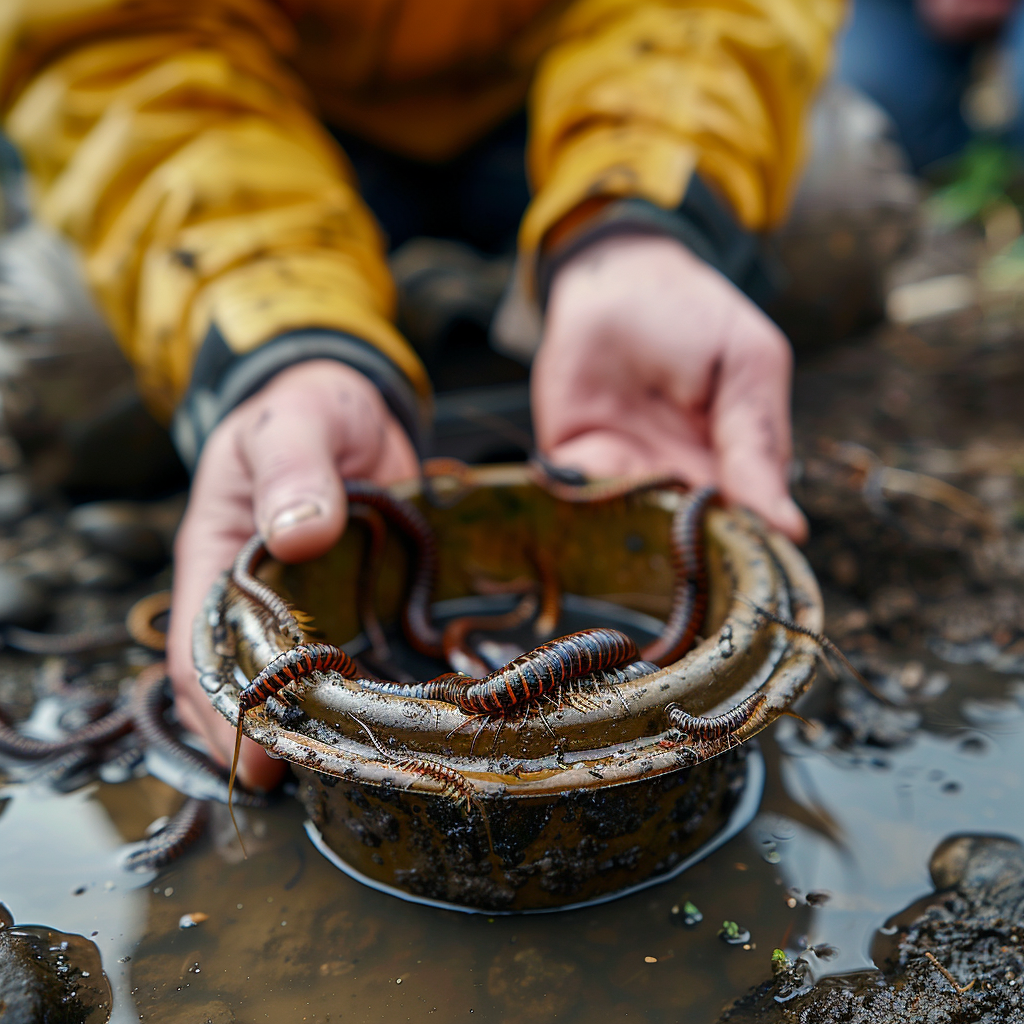
If you want to put worms in a septic system that’s already in use, here’s what you should do:
- Pick the right kind of worms and the amount you need; tiger worms are often chosen because they’re great at breaking down organic waste.
- Carefully place the worms straight into the septic tank or use a special worm habitat that fits into the system well.
- You should also think about timing – it’s best to add the worms when there’s not a lot of activity in the system so they aren’t overwhelmed at first.
Maintenance and Monitoring of Worm Populations
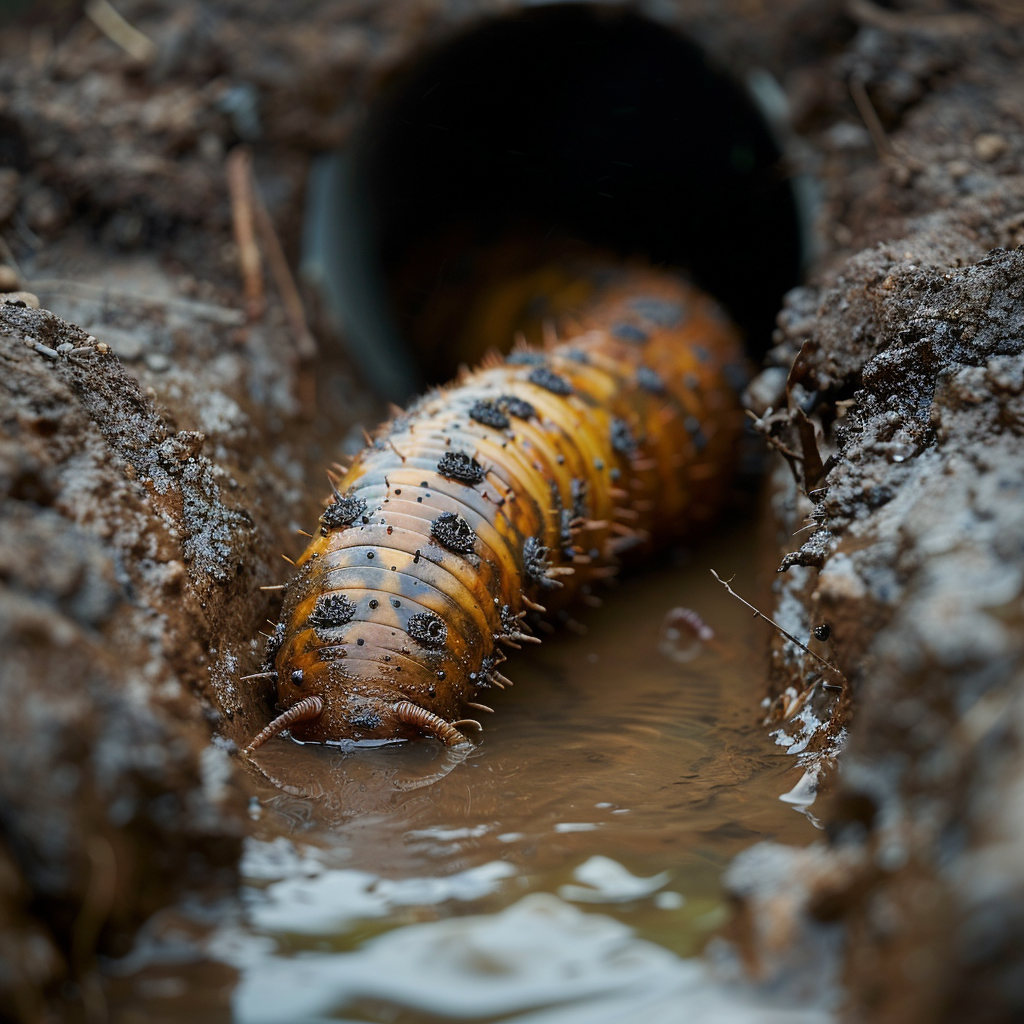
Looking after a worm-operated septic system is vital for its ongoing success:
- Keeping an eye on the worms regularly ensures they’re thriving and busy,
- Steer clear of harsh chemicals, as they can hurt the worms and throw off your environmentally friendly system,
- Testing and adjusting pH levels can keep the worms’ habitat just right,
- If you spot signs like less worm action or trash not breaking down right, act fast. You might need to add more worms or tweak the conditions in your tank.
1. Reduction in Sludge Buildup
Adding worms to a septic system can seriously cut down on muck piling up. These little critters make breakin’ down organic stuff way faster, avoiding the usual gunk pile-up that’ll block your system if not cleared out often. While they do their thing, you won’t have to stress about the nasty and pricey trouble of sludge crowding your tank.
2. Potential for Reduced Need for Septic Tank Pumping
With worms on the job digestin’ waste inside a septic tank they might lead to you not havin’ to pump it out so much. This could mean saving time and dollars because hiring pumpers costs a pretty penny. Pick this natural method and you might stretch the time between callin’ in the pros.
3. Positive Impact on the Longevity of the Septic System
Keepin’ things balanced with these little guys in your septic tank makes the whole setup last longer. The work the worms do means there’s less wear and tear on the system’s parts. Ultimately, this leads to fewer hiccups and fixes needed over time. By stayin’ ahead of things, you’ll end up with a reliable septic system that saves you worry and cash in the long run.
4. Balancing worm populations with system load
It’s important to match how much waste is comin’ into your septic system with the number of worms and other microbes that are in there workin’ away. Put too much in, and it won’t run well; not enough, and your worm community might not thrive. Watch what’s coming in and adjust to keep things in harmony.
5. Avoiding harmful substances that can affect worm health
The well-being of worms in your septic system can take a hit if bad stuff gets in. Chemicals like bug killers, weed whackers, and strong cleaners are bad news for them. Keepin’ those nasties out will protect your worms and, down the line keeps your system tickin’ over nicely.
6. Troubleshooting common issues with worm-based systems
Problems can pop up in systems that rely on worms, but usually, they’re either preventable or fixable if you’re proactive. Be on the lookout for warning signs like slow drains or bad smells – these can mean something’s not right. Tackle any issues quick to stop bigger troubles down the road.
How Worms Make Septic Tanks Better
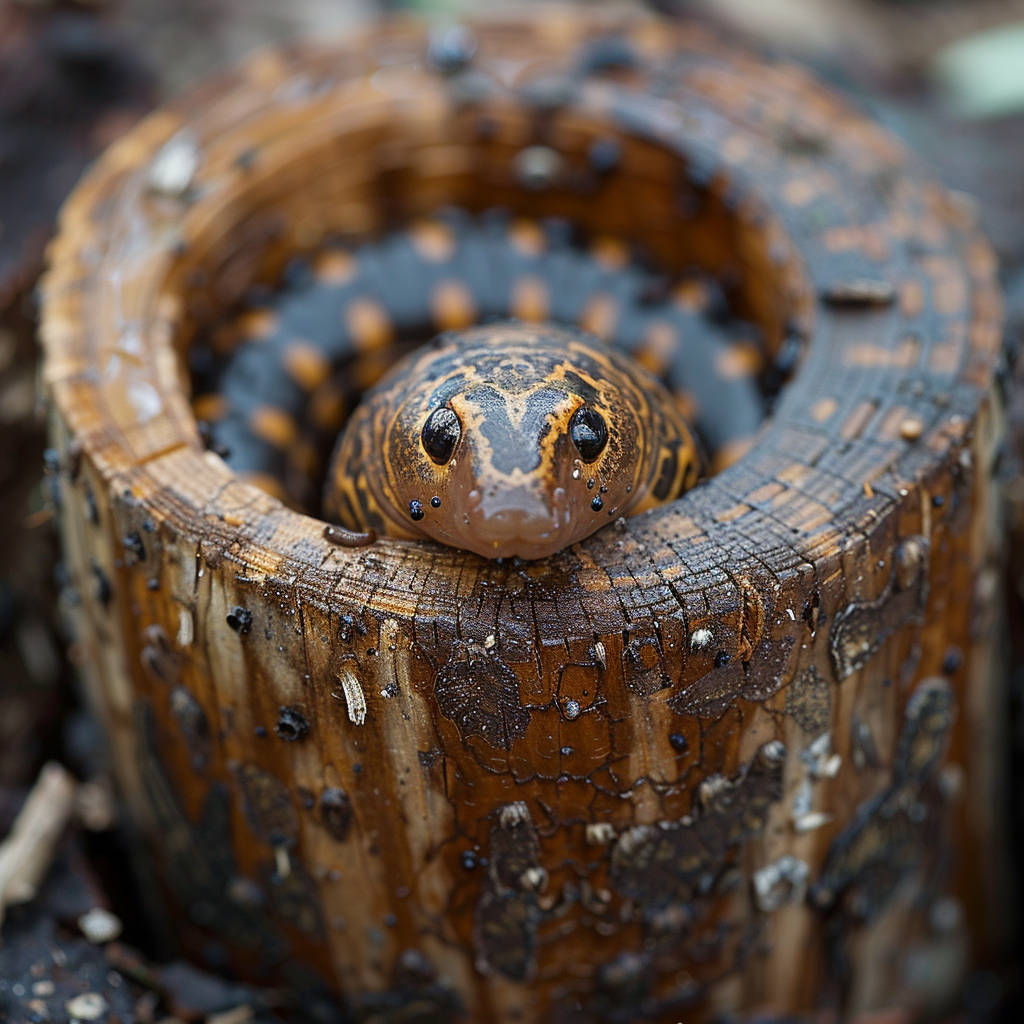
A bunch of stories have popped up, showing how adding worms to septic tanks is a good move. These tales prove that worms are great at breaking down organic trash. Folks who’ve tried this say they see a big drop in waste and save on the hassle and money of keeping things running.
Great Results from Using Worms
Different places tried putting worms in their septic tanks and got awesome results. Like, people don’t need to empty their tanks as much. Also, studies show the water coming out has fewer nasties in it, which is better for the planet.
Comparing Worm-Assisted and Regular Septic Systems
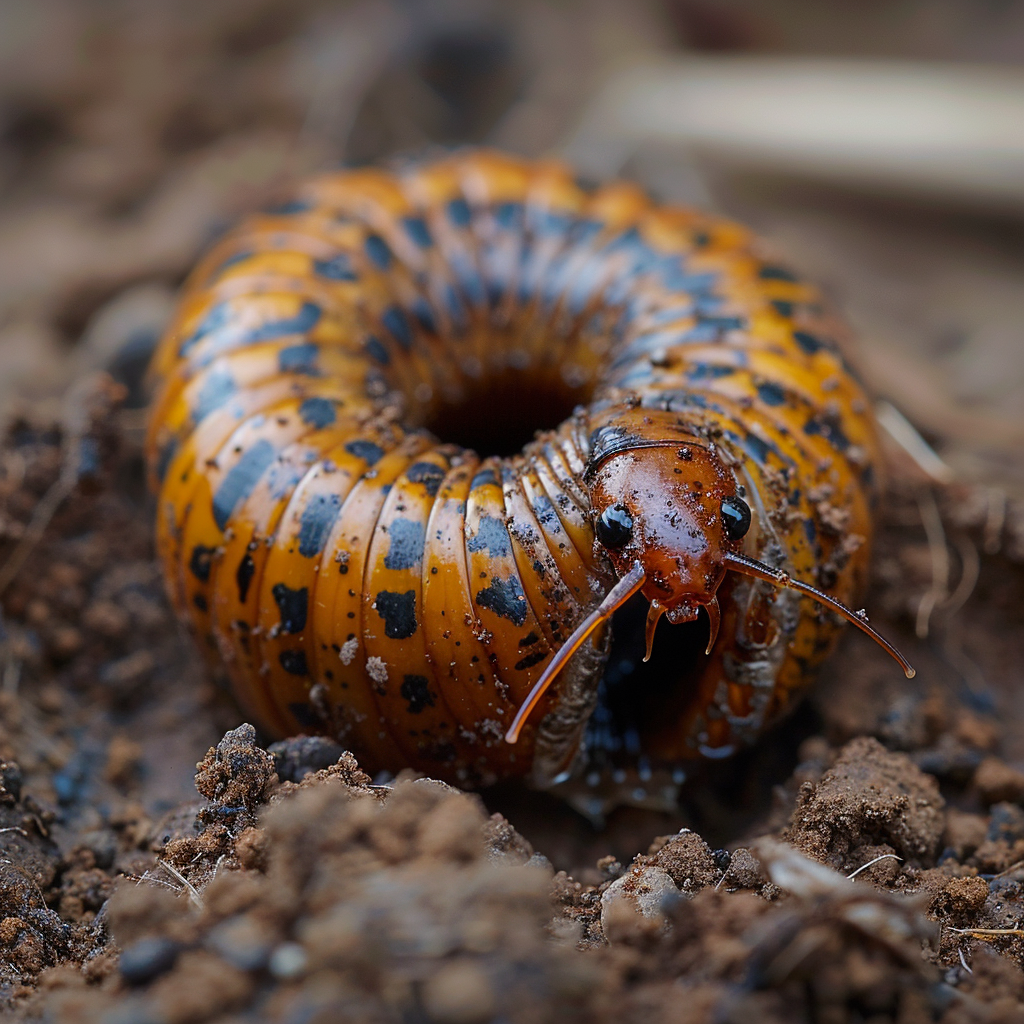
When you look at regular septic systems and those that use worms, there are clear differences. We can see that the systems with worms are not just better at doing their job, but they can also save you money in the long run.
The Results of Direct Comparisons
Head-to-head studies show that septic systems with worms come out on top. They break down waste faster and produce cleaner water. Compared to old-school systems, these wormy setups manage waste better, which could mean your septic system will last longer and be kinder to the environment.
Future Research and Development Prospects
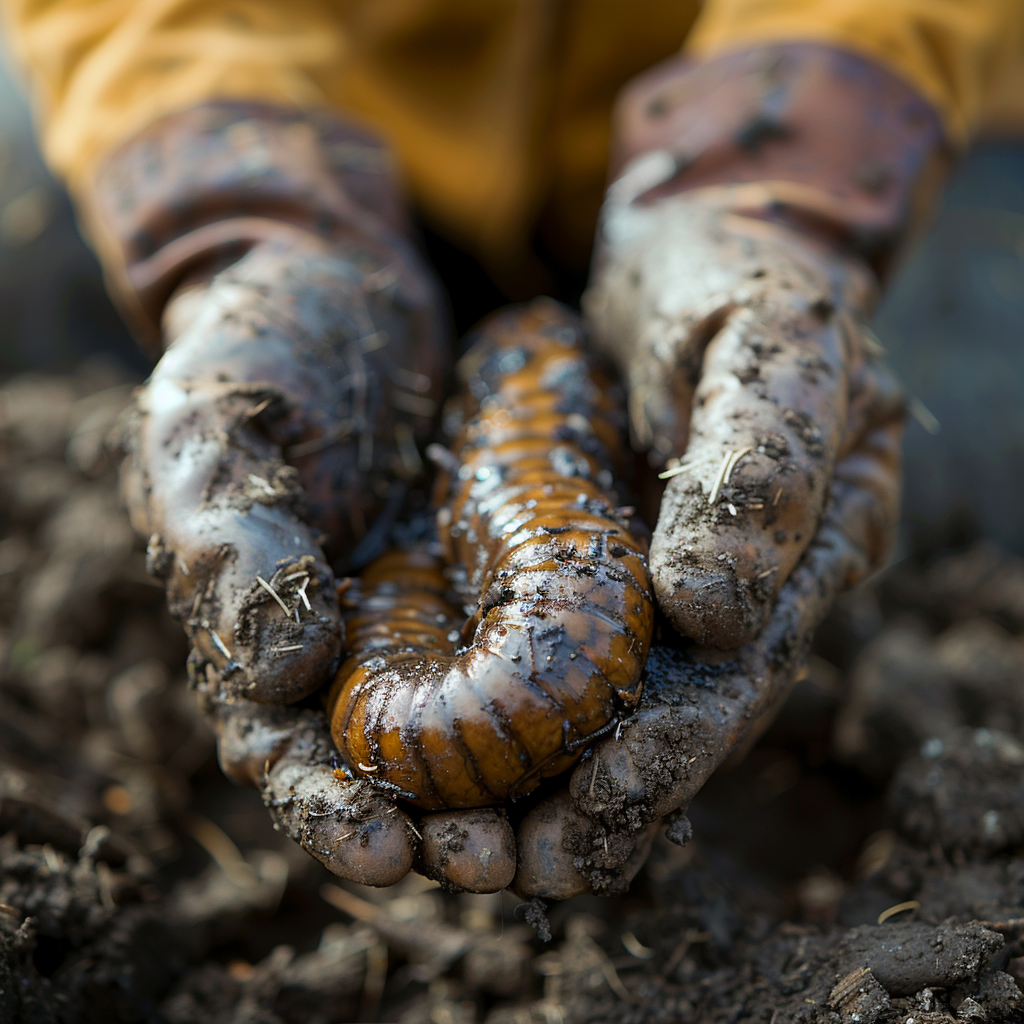
There’s a lot of room for growth in the field of worm-assisted septic treatment. New discoveries are made all the time as research digs into how to best adapt worm populations to different climates and types of waste.
Current Research and Opportunities for New Ideas
Groundbreaking work is being done on picking the right worms and building better tanks to make these systems work even better. As more people realize how good this is for both the planet and our wallets, it looks like worm-based sewage treatment could be the next big thing in keeping things clean.
You can find out more here: https://www.ars.usda.gov/news-events/news/research-news/2008/role-of-earthworms-in-soil-explored/

I’m Tim Robberts, a seasoned wastewater treatment & septic system expert with over 40 years of experience in the field. My career began as a septic tank installer, and I quickly gained a reputation for my attention to detail and commitment to excellence. Over the years, I’ve honed my skills in designing, installing, and maintaining septic systems for residential and commercial properties.
